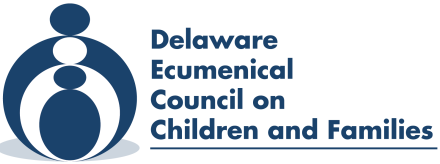
Medicare 101
People often confuse Medicare with Medicaid– two programs which sound very much alike, and which often serve the same people, but are different. So, WHAT IS MEDICARE?
- Health insurance for people age 65 and older
- Health insurance for people under age 65 with certain disabilities or health conditions
Medicare has FOUR main parts. Parts A, B, C, and D. Each part covers specific services and benefits, or provides different options for coverage:
- Part A (Hospital Insurance): helps cover inpatient care in hospitals, skilled nursing facilities, hospice and home health care.
- Part B (Medical Insurance): helps cover services from doctors and other providers, outpatient care, home health care, durable medical equipment and some preventative services.
- Part C (Medicare Advantage): run by Medicare-approved private insurers, and includes all benefits and services covered under Part A, and B, and usually Part D; may include extra benefits at additional cost.
- Part D (Prescription Drug Coverage): run by Medicare-approved private insurers and helps cover the cost or prescription drugs.
As with most health insurance, there monthly premiums, annual deductibles and co-payments or co-insurance associated with Medicare:
- Medicare Part A is premium-free if you have worked and paid taxes for at least 40 quarters (equivalent of 10 years), but you are responsible for meeting a deductible for each benefit period, $1,184 in 2013, and paying co-insurance for Medicare covered care. A benefit period begins the day you are admitted as an inpatient and ends when you haven’t received any inpatient care for 60 days in a row. or
- Medicare Part B: the monthly premium for 2013 for most beneficiaries is $104.90, the annual deductible is $147, and generally pay 20% of Medicare-covered services.
- For Medicare Parts C and D: in addition to paying the monthly Part B premium , you also pay monthly premiums in additions to deductibles and con-insurance, all of which vary by plans.
Medicare eligibility:
Upon reaching age 65
If you are under 65 and disabled, you become eligible 24 months after you start receiving Social Security Disability Insurance (SSDI), or disability benefits from the Railroad Retirement Board (RRB).
If you have End State Renal Disease (ESRD) or ALS (Lou Gehrig’s disease), you become eligible the month you disability benefits begin.
I person who is eligible for Medicare may also by eligible for Medicaid based on income:
- Medicaid helps pay medical costs for persons of any age who have limited income and resources
- Medicaid is jointly funded by the federal and state governments, but is administered by the state, which determines eligibility based on the income and resources limits it sets.
There is a lot to know and think about when it comes to Medicare, and how to make the most of its many benefits. Fortunately, there is a lot of good information and help available, at your fingertips and in your community.
RESOURCES INCLUDE:
- The “Medicare & You” handbook, mailed to all Medicare beneficiaries
- The Medicare website: www.medicare.gov
- Call for answers to your Medicare questions at: 1-800-MEDICARE (633-4227) TTY users call 1-877-486-2048
- The Social Security Website: www.socialsecurity.gov
- The Social Security toll-free number 1-800-772-1213/ TTY users call 1-800-325-0778
- ELDERinfo, the Delaware State Health Insurance Program (SHIP) can provide you with personalized help in your community- call: 1-800-336-9500 to get the help you need.
*A special thanks to Nancy B. O’Connor, the Medicare Regional Administrator for the states of Delaware, Maryland, Pennsylvania, Virginia, West Virginia, and the District of Columbia, for providing us with this helpful information to share with our visitors.

Protecting Others
Helping Children
To report child abuse anywhere in Delaware, call the
Department of Services for Children, Youth and Their Families: 1-800-292-9582
For additional resources, call the Delaware Helpline by dialing: 2-1-1
Helping Elderly
To report elder abuse anywhere in Delaware, call The Department of Health and Social Services: 1-800-223-9074
To get help for elderly persons being victimized by fraud or other financial exploitation, call the Department of Justice: 302-577-8508 (New Castle County), or 302-739-4211 (Kent/Sussex Counties).
To find befriending and friendly visiting for elderly at risk or in crisis, call the Delaware Ecumenical Council on Children and Families at 302-225-1040, or toll free at 855-613-2110. Also, visit the Faith in Action tab at the top of the page for more information.
Helping Partners
To get help for domestic violence or other intimate partner violence, including emergency shelters and other crisis intervention, call Child, Inc.: 302-762-6110 (New Castle County), or Families in Transition: 302-422-8058 (Kent/Sussex Counties).
To find counseling for persons impacted by domestive violence, call:
Child, Inc: 302-762-8989 (New Castle County)
Catholic Charities: 302-655-9624 (New Castle County)
Peoples Place II: 302-424-2420 (Kent and Sussex Counties)
ALSO: Latin American Community Center: 302-655-7338(New Castle County)
La Esperanza: 302-854-9262 (Sussex County)
Helping Animals
To report suspected cruelty to animals, find or report lost animals, and/or report a stray animal(s), please call The Delaware SPCA Humane Law Enforcement Division (HLE): 302-998-2281 (New Castle County), 302-856-6361 (Sussex County). You may also file a complaint online: http://www.delspca.org/online-animal-cruelty-reporting/
The Delaware SPCA’s HLE Program is not funded by the government. They are a nonprofit organization that relies on donations to provide this life-saving program. Visit this webpage to find out how you can lend your support: http://www.delspca.org/donate/
For more information about the protection of animals, visit The Humane Society of the United States: http://www.humanesociety.org/about/state/delaware/delaware_resources.html
